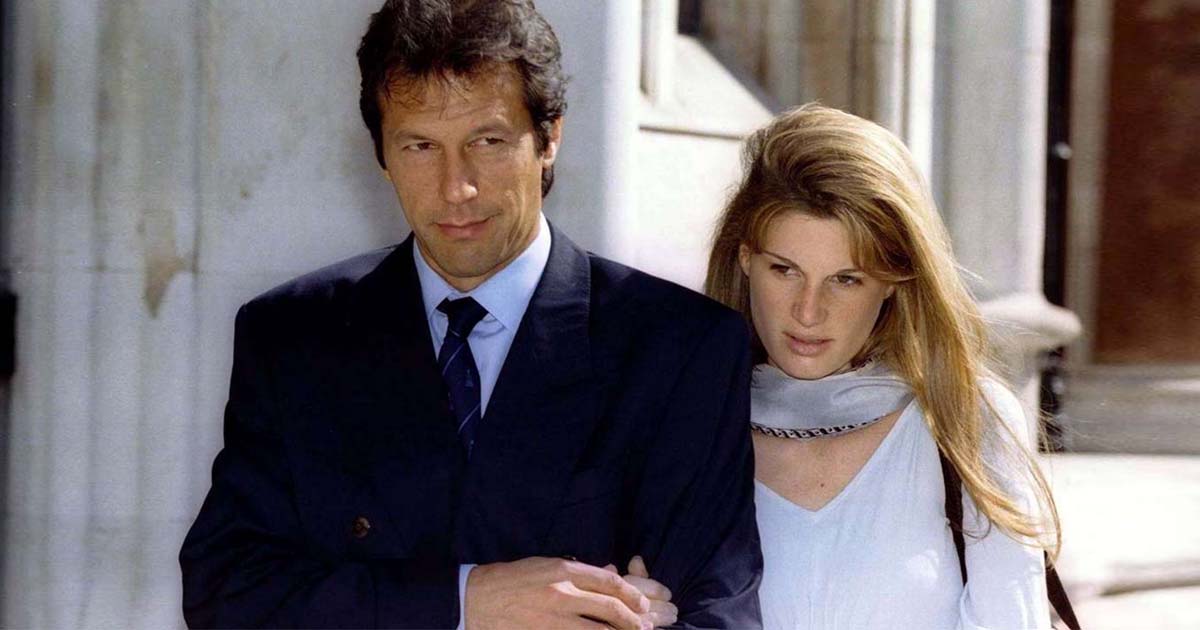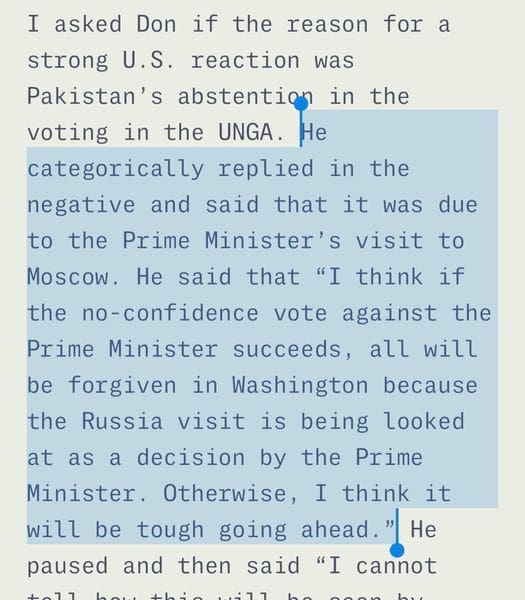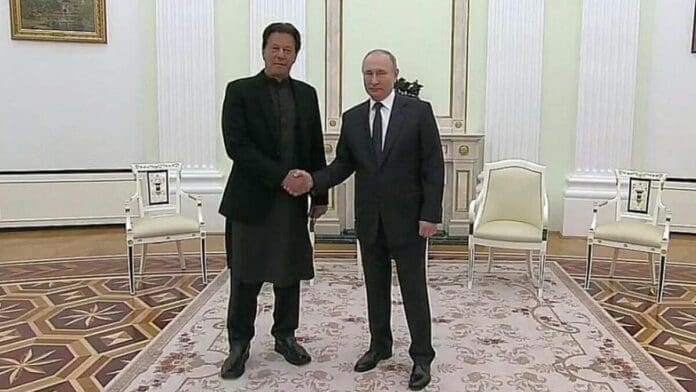The article in question paints a rather skewed image of Imran Khan, muddled with overtones of bias. It’s imperative that we shed light on the multifaceted nature of international politics and understand Khan’s actions within the broader context of Pakistan’s national interests. First and foremost, the assertion that Khan endorsed Putin’s aggressive actions in Ukraine is not just an oversimplification; it’s patently false.
During his visit to Russia, Khan was in constant communication with his security establishment, evaluating how best to navigate the delicate geopolitical situation. The primary aim? Negotiating gas and wheat deals is beneficial for Pakistan. With over 100 million of its populace grappling with poverty, securing resources at an affordable price isn’t a sign of alliance but a testament to a leader’s commitment to his country’s welfare.
Comparing Pakistan’s stance on the Russia-Ukraine conflict with that of India elucidates further. India, too, prioritized its national interests and opted for a neutral stance. Neutrality is a valid diplomatic position, especially for nations that have historically been dragged into proxy wars or have faced their share of internal tumult. Khan’s intention was transparent: avoid entanglement in another external conflict when the nation is teetering on the brink of economic challenges.
It’s rather reductive to label Khan as “anti-West” based on such interactions. If anything, Khan is “anti-war”. Throughout his tenure, he has consistently advocated for political solutions to conflicts, emphasizing dialogue over violence. He has often stated that every conflict, no matter how deeply entrenched, has a political solution. This sentiment isn’t borne out of naiveté but rather from Pakistan’s own history, colored with wars and the subsequent realization of their devastating aftermath.

Furthermore, drawing a connection between Khan’s past – a life dotted with celebrity interactions and his present – a devoutly religious disposition is a distraction from the crux. Leaders, like all individuals, evolve. However, associating his personal transformation with his political inclinations is a stretch. His meeting with global leaders, be it Putin or Xi Jinping, should be understood as Pakistan carving its space in global geopolitics, not as an endorsement of any nation’s policies.

Regarding the US’s involvement in Khan’s political downfall, there is now substantial evidence pointing towards active encouragement, if not outright influence, in his removal. While the complexities of international politics are vast and multi-faceted, it’s hard to deny the role of external powers in shaping domestic politics. Khan’s consistent prioritization of Pakistani interests appears to have ruffled feathers internationally, leading to efforts from global powers, notably the US, to see him ousted.
Such maneuvers underscore the intricate dance of diplomacy and the thin line leaders tread in upholding national interests amidst global pressures. In conclusion, it’s pivotal to approach the dynamics of global politics with a balanced perspective. Painting Imran Khan’s pragmatic decisions, aimed at safeguarding Pakistani interests, as indications of his alignment with the “West’s enemies” is a misrepresentation. Such narratives not only oversimplify complex geopolitical scenarios but also undermine the earnest efforts of leaders trying to navigate their nations through turbulent times.
